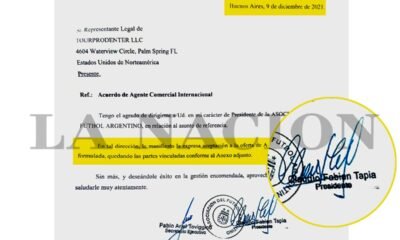INTERNACIONAL
WATCH: Dem senator agrees with GOP that Trump’s making progress on trade war
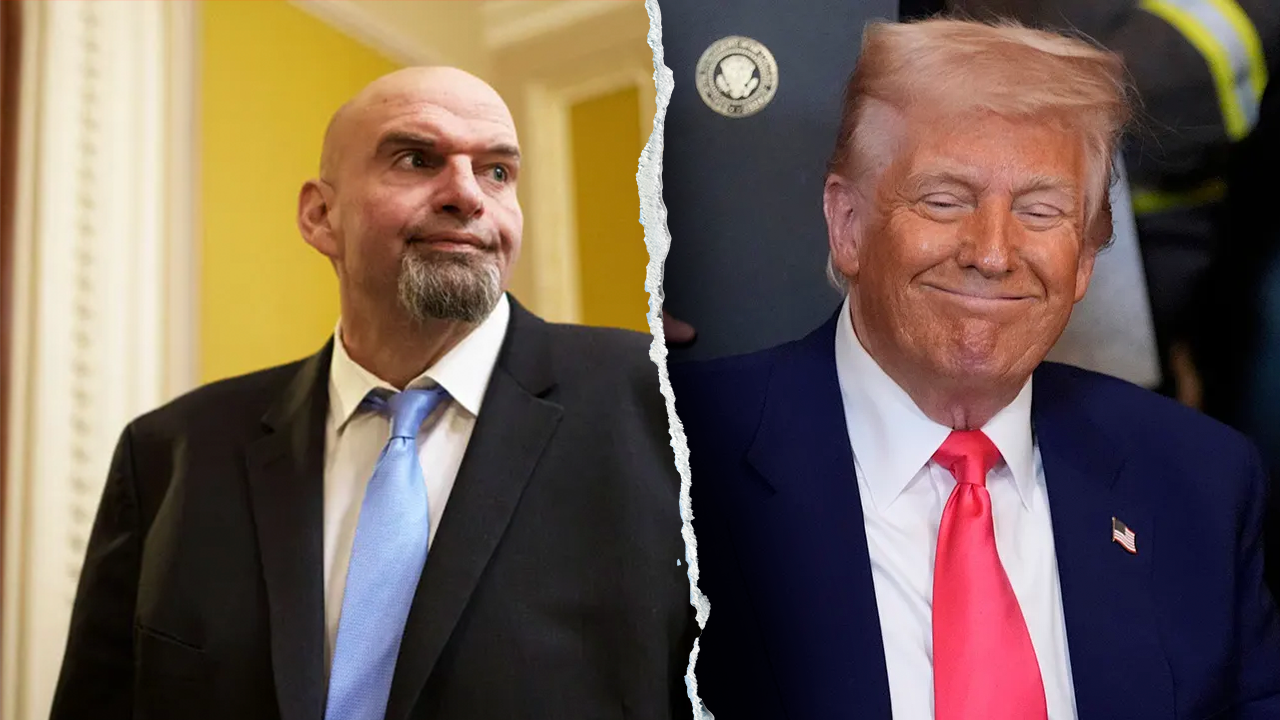
NEWYou can now listen to Fox News articles!
Pennsylvania Democratic Sen. John Fetterman admitted that his party had gotten it wrong about President Donald Trump’s tariffs, saying that, so far, the U.S. trade war is «going well.»
Asked by Fox News Digital whether he thought the Trump administration was winning the trade war, Fetterman responded, «Absolutely.»
«I’m a huge fan of Bill Maher, and I mean, I think he’s really one of the oracles for my party, and he acknowledged it, it’s like, hey, he thought that the tariffs were going to tank the economy, and then he acknowledged that it didn’t,» said Fetterman.
«So, for me,» he went on, «it seems like the E.U. thing has been going well, and I guess we’ll see how it happens with China.»
This comes as Trump is increasing the tariff on Canada from 25% to 35% beginning on Friday, after the U.S. neighbor to the north failed to help curb the imports of fentanyl and other illicit drugs. The White House noted that Trump signed an executive order on Thursday to increase the tariff in an effort to hold Canada accountable for its role in the flow of illicit drugs into the U.S.
Additionally, Trump signed another executive order on Thursday to modify the reciprocal tariff rates for some countries to further address the United States’ trade deficits. The action reflects Trump’s efforts to protect the U.S. from foreign threats to national security and the economy by securing «fair, balanced and reciprocal trade relationships,» the White House said.
TRUMP AIMS TO RESHAPE GLOBAL ECONOMY WITH HISTORIC NEW TARIFFS
Pennsylvania Democratic Sen. John Fetterman admitted that his party had gotten it wrong about President Donald Trump’s tariffs, saying that, so far, the U.S. trade war is «going well.» (AP/Alex Brandon and Drew Angerer/Getty Images)
Earlier this year, Trump announced an additional 10% tariff on all countries as well as higher tariffs for countries the U.S. has large trade deficits with. The tariffs became effective on April 9. Since then, Trump and his team have since made several trade deals with several countries.
The U.S. struck a deal with the European Union in which the EU agreed to purchase $750 billion in U.S. energy and make new investments of $600 billion by 2028. The EU also agreed to accept a 15% tariff rate. The U.S. also made a deal with Japan, which agreed to invest $550 billion in the U.S. to rebuild and expand core American industries. Japan also agreed to further its own market to U.S. exports, and like the EU, Japan agreed to a baseline 15% tariff rate.
However, many Democrats are digging in their heels against Trump’s tariffs strategy, saying the negative effects are still on the horizon.
Sen. Jack Reed, D-R.I., forecast that, despite the increased revenue, «within a few weeks or months, you’ll start seeing significant increases in most things you buy. And also, you will see disruption in terms of a lot of our industries, because they’re not able to access product or supply.»
TRUMP IMPOSES SWEEPING TARIFFS ON DOZENS OF COUNTRIES AFTER LANDING MASSIVE TRADE DEALS
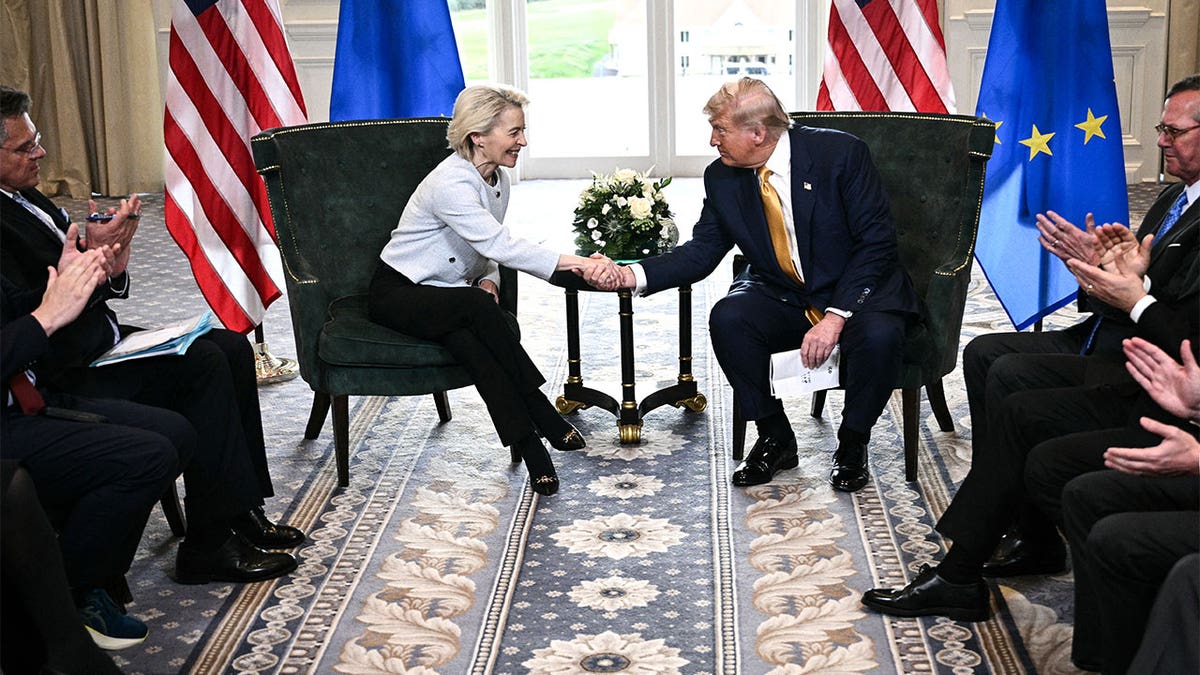
President Trump shakes hands with European Commission President Ursula von der Leyen after signing a trade deal, July 27, 2025, in Turnberry, Scotland. (Getty Images)
«When you have across-the-board tariffs, it does operate like a national sales tax, and I think people are going to be more and more hurt,» predicted Sen. Chris Van Hollen, D-Md.
«This is the president who said he was going to come in and reduce prices. Prices are going to rise, and they’re going to rise more over time,» said Van Hollen.
Massachusetts Democratic Sen. Elizabeth Warren said that «Donald Trump may beat his chest and say, ‘Man, I made him take a 15% tariff or 25% tariff,’ but also understand that every one of those trading partners is now looking hard all around the rest of the world to find other customers, because Donald Trump is signaling loud and clear that the United States under Donald Trump is not a reliable trading partner. And that’s not good for any of us.»
Warren also claimed that Trump’s tariffs are the reason the Federal Reserve has not lowered U.S. interest rates.
«Jerome Powell said last month that he would have lowered interest rates back in February if it hadn’t been for the chaos that Donald Trump was creating over trade. And the consequence has been that American families have, for six months now, been paying more on credit cards, more on car loans, more home mortgages, all because Donald Trump has created chaos,» she said.
US-CHINA TRADE DEAL ON THE HORIZON, SAYS TREASURY SECRETARY
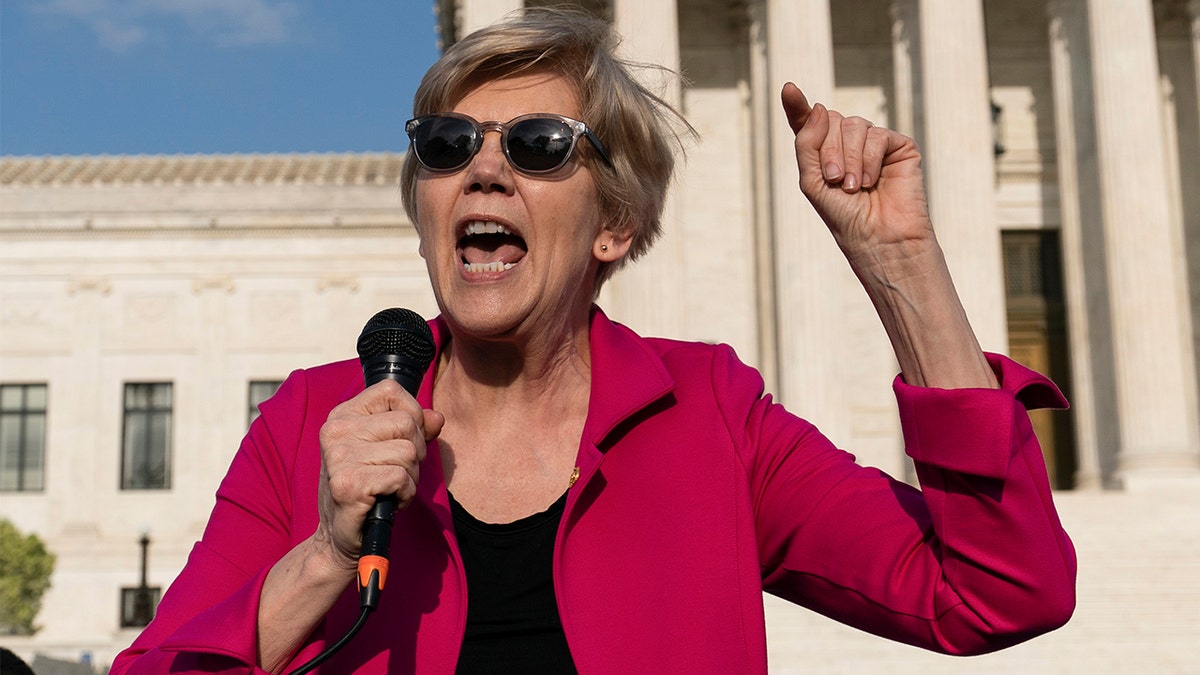
Sen. Elizabeth Warren, D-Mass., speaks during a protest outside of the U.S. Supreme Court on Tuesday, May 3, 2022, in Washington. (AP Photo/Alex Brandon)
Meanwhile, Republicans whom Fox News Digital spoke with urged the president to double down on his tariff strategy.
«I think it’s exactly the right approach. It’s what I have been urging the president to do, and I think the successes he’s winning are big wins for America,» said Sen. Ted Cruz, R-Texas.
In response to Democrats still predicting economic fallout because of the tariffs, Cruz sarcastically remarked, «I’m shocked, shocked that Democrats are rooting for the economy to do badly under President Trump.»
«It’d be nice if some Democrats would put their partisan hatred for Trump aside and actually start working together for American workers and American jobs. Unfortunately, I don’t see a whole lot of Democrats interested in doing that right now,» said Cruz.
Sen. John Kennedy, R-La., while agreeing that the tariffs have been successful, voiced that he hopes the goal is to ultimately achieve reciprocal zero percent tariffs between the U.S. and its trade partners.
DEMOCRATIC SENATOR ADDRESSES WHETHER KAMALA HARRIS HAS REACHED THE END OF HER POLITICAL CAREER
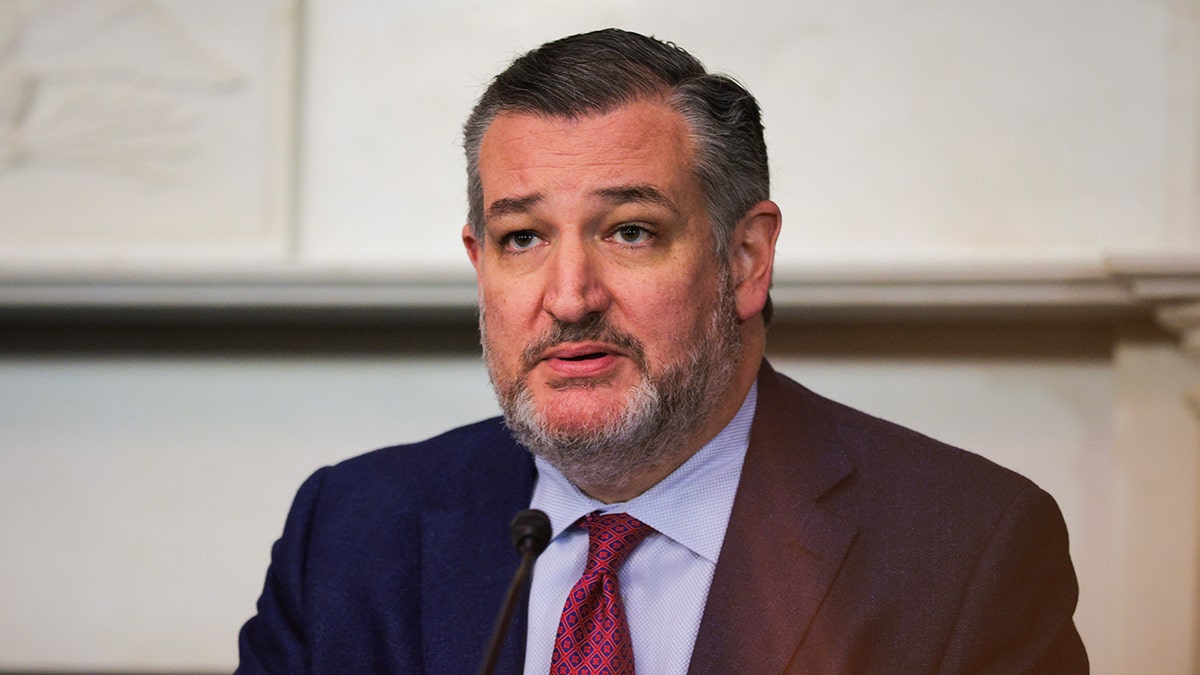
«I think it’s exactly the right approach. It’s what I have been urging the president to do, and I think the successes he’s winning are big wins for America,» said Sen. Ted Cruz, R-Texas. (Kayla Bartkowski/Getty Images)
«Clearly, the president got a good deal from one perspective. The Europeans just caved, they did. Fifteen percent tariffs on them, zero on us, commitment to invest in our country. But the part of the deal I like the most, the E.U. and the president agreed that a whole bunch of goods would be tariff-free. That is, no American tariffs and no E.U. tariffs. It’s called reciprocity, and ideal reciprocity is zero on both sides,» he explained.
CLICK HERE TO GET THE FOX NEWS APP
«That’s what I would like us to achieve in all the trade deals,» Kennedy explained. «Let the free enterprise system work. May the best product at the best price win. That, to me, would be the perfect situation.»
Fox News Digital’s Greg Wehner contributed to this report.
john fetterman,donald trump,trade,democratic party,executive policy
INTERNACIONAL
Los microplásticos generan nuevas moléculas químicas bajo la acción de la luz solar
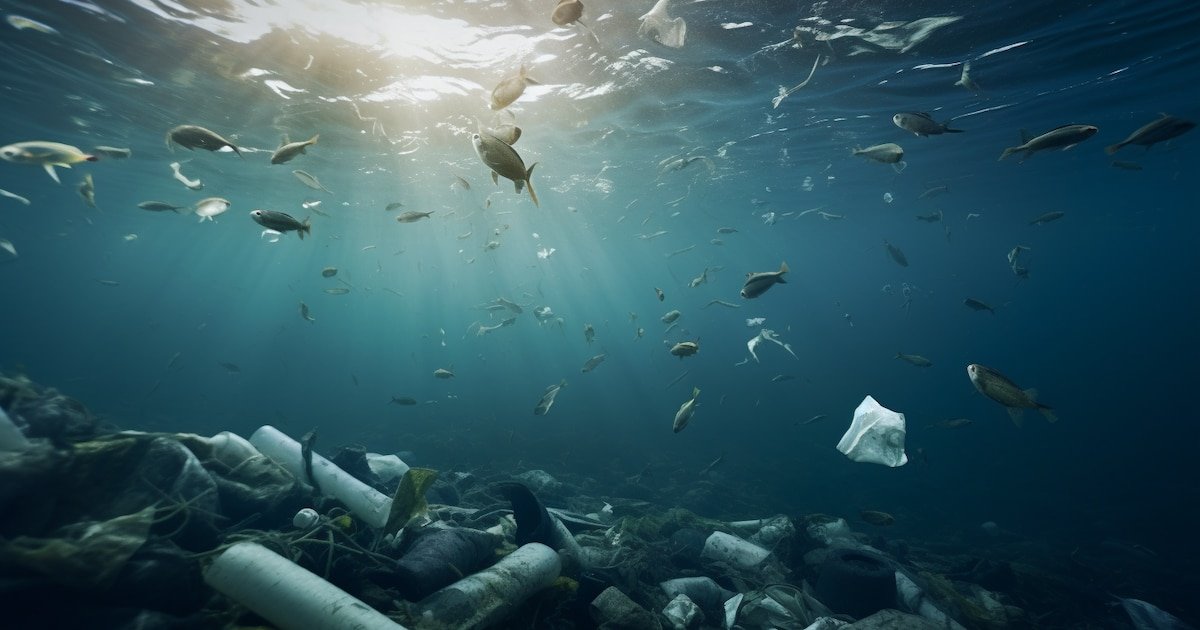
Un grupo de científicos de China y Singapur descubrió que los microplásticos, sean convencionales o biodegradables, sueltan compuestos invisibles en el agua cuando reciben luz solar.
Estos compuestos recibieron el nombre de «materia orgánica disuelta derivada de microplásticos« y son distintos de los que ya existen en la naturaleza.
El hallazgo, que fue publicado en la revista New Contaminants, muestra que la luz ultravioleta activa a los residuos plásticos y convierte el agua en un lugar donde se forman nuevas sustancias.

Los investigadores advirtieron que el aporte de los nuevos compuestos aumentará en el futuro por la gran cantidad de micro y nanoplásticos y residuos plásticos que ya hay en el ambiente, y porque su cantidad sigue en aumento.
El resultado implica que, a medida que crece la contaminación plástica, el agua recibe cada vez más compuestos que pueden afectar a los seres vivos y modificar los ciclos naturales.
El estudio fue realizado por Shiting Liu, Xiamu Zelang, Chao Ma, Zhuoyu Li, Xinyue Wang, Hanyu Ju y Jiunian Guan.
Trabajan en la Escuela de Medio Ambiente de la Universidad Normal del Noreste, el Instituto de Ciencias del Sistema Tierra de la Universidad de Tianjin y el Laboratorio Estatal de Conservación de Suelos de la Academia de Ciencias de China. También colaboró Jingjie Zhang, de la Universidad Nacional de Singapur.

Los microplásticos son pequeños fragmentos de plástico, de entre 13 y 74 micrómetros, que provienen de la degradación de objetos plásticos más grandes y pueden encontrarse en el agua, el suelo y el aire.
El grupo de investigadores se había propuesto averiguar cómo los microplásticos liberan compuestos en el agua, y qué cambios había bajo luz ultravioleta.
Tuvieron en cuenta tanto al Ácido PoliLáctico (PLA) y el tereftalato de adipato de polibutileno (PBAT), que son biodegradables, como los convencionales (PE y PET).

El equipo comparó esos plásticos con materia orgánica natural del río Suwannee. Así, pudo ver cómo varía la cantidad y el tipo de compuestos que sueltan los microplásticos y si la luz acelera o cambia ese proceso.
Se preguntaron si los compuestos de los plásticos biodegradables se parecen más a los de origen natural o si también son diferentes.
El estudio también analizó el ritmo del proceso, es decir, cómo y cuándo cambian los compuestos que quedan en el agua después de estar en contacto con microplásticos y luz.

Para hacer los experimentos, los científicos pusieron tres gramos de cada microplástico en agua ultrapura y los sometieron a luz ultravioleta y a oscuridad.
Analizaron las muestras durante 96 horas usando tecnologías que permiten ver las moléculas en detalle.
La luz ultravioleta aceleró la liberación de compuestos desde los plásticos. El modelo matemático mostró que la liberación sigue un ritmo constante cuando hay luz UV.
Los plásticos biodegradables, como PLA y PBAT, soltaron más compuestos solubles bajo la luz. Esto sucede porque tienen una estructura menos estable.
Los plásticos aromáticos, como PET y PBAT, liberaron compuestos de forma más lenta y pareja.

Durante el proceso, cambiaron los tipos de moléculas en el agua. En PET, los compuestos oxidados pasaron a ser mayoría. En PLA, los taninos y compuestos oxidados subieron mucho.
Los resultados confirmaron que la materia orgánica de los plásticos tiene una composición distinta a la natural: más moléculas oxidadas, menor peso y más aditivos plásticos.
El análisis identificó monómeros, oligómeros y aditivos, lo que muestra que los microplásticos no solo sueltan fragmentos, también sustancias químicas añadidas durante su fabricación.

El hallazgo implica que la materia orgánica derivada de microplásticos puede cambiar la forma en que los nutrientes y contaminantes se mueven en el agua.
Algunos compuestos pueden servir de alimento para bacterias marinas, mientras otros podrían frenar su crecimiento o ayudar a formar nuevas sustancias químicas.
Tras analizar los resultados, los investigadores sugieren vigilar el impacto ambiental de estos compuestos en distintas etapas, ya que cambian con el tiempo y el tipo de plástico.
Además, sugieren que el uso de la inteligencia artificial puede ayudar a predecir esos cambios y sus efectos.

Si bien reconocieron que se deberían realizar más investigaciones en ambientes naturales, el doctor Guan, autor principal, resaltó: “Los microplásticos no solo contaminan los ambientes acuáticos como partículas visibles. También crean una pluma química invisible que cambia a medida que se degradan”.
Además, precisó que el estudio “muestra que la luz solar es el principal motor de este proceso y que las moléculas liberadas por los plásticos son muy diferentes de las producidas de forma natural en ríos y suelos”.
Esa presencia constante de los microplásticos y su materia orgánica asociada puede modificar los ciclos naturales y la vida en el agua. Las consecuencias recién empiezan a entenderse.
Nature / Wildlife,Environment,Europe
INTERNACIONAL
Oregon residents sue Homeland Security after tear gas used on anti-ICE protesters

NEWYou can now listen to Fox News articles!
An affordable housing nonprofit and group of nearby residents filed a lawsuit against the Department of Homeland Security (DHS), asking the court to «preclude» the agency from deploying tear gas and chemical or smoke-related munitions that were affecting nearby homes in Oregon.
The suit comes amid months of clashes between DHS agents and anti-immigration-enforcement groups, including Antifa, outside an Immigration and Customs Enforcement (ICE) facility near Interstate 5, where illegal immigrants have been detained and processed.
The Gray’s Landing houses involved in the suit — which was brought by REACH Community Development and supported by the progressive groups Democracy Forward and Protect Democracy — lies kitty-corner to the ICE facility on the Willamette River.
DHS SHARES ‘VIDEO EVIDENCE’ TO JUSTIFY BORDER PATROL’S TEAR GAS USE DURING CHAOTIC CHICAGO IMMIGRATION RAID
Federal agents clash with protesters outside a downtown U.S. Immigration and Customs Enforcement facility in Portland, Oregon, Oct. 4, 2025. (Spencer Platt/Getty Images)
In the filing, the plaintiffs called DHS’ actions «shocking» and asked the court to ban immigration enforcement agents from using chlorobenzalmalononitrile (CS gas/»tear gas») and other crowd control tools «unless the use of such munitions is necessary to protect against an imminent and concrete threat to the lives of federal officers or other persons.»
The suit claims officers have deployed pepper balls, CS gas and the like «toward and around» the low-income housing complex «repeatedly when faced with no violence from protesters or imminent risk of harm.»
The nearby residents claimed to have suffered acute respiratory distress, ocular burning sensations and post-traumatic stress disorder episodes due to ICE’s forceful enforcement strategies.
ICE ACCUSES DEM LAWMAKER OF JOINING ‘RIOTING CROWD’ IN ARIZONA, INTERFERING IN MASS ARREST
«The government causing poisonous gas and chemicals to enter plaintiffs’ bodies violates their right to bodily integrity, which the Supreme Court has long recognized as a component of the right to liberty,» the suit claimed.
REACH CEO Margaret Salazar said that as a residential community, Gray’s Landing houses families, senior citizens, veterans and handicapped people who are «repeatedly exposed to chemical agents.»
«Children are coughing indoors, seniors are struggling to breathe, and daily life has become a source of stress and fear.»
TRUMP ADMIN SUES ILLINOIS GOV. PRITZKER OVER LAWS SHIELDING MIGRANTS FROM COURTHOUSE ARRESTS

An anti-ICE demonstrator wearing a keffiyeh is led away by authorities in handcuffs. (TPUSA Frontlines)
Democracy Forward leader Skye Perryman added that chemicals being used by the feds are also discouraging protesters from «using their voices.»
«Federal officers know that poison is flooding apartments where families live, where children sleep, and where seniors and veterans seek safety—and they keep using them anyway, fully aware of the severe harm they cause. There is no legal or moral justification for this use of force–it is a profound abuse of power and violates the U.S. Constitution. We are in court to stop it.»
Daniel Jacobson, an attorney for the plaintiffs, said in a statement the government is «poisoning» residents.
BORDER PATROL CHIEF, PROGRESSIVE MAYOR CAUGHT ON CAMERA IN TENSE STREET SHOWDOWN: ‘EXCELLENT DAY IN EVANSTON’
President Donald Trump previously tried to deploy Oregon National Guard troops to quell springtime unrest in Portland, while Oregon sits among the top five states with the largest year-to-year increase in ICE arrests according to the Salem Reporter.
More than 660 people have been arrested by the feds there in 2025.
After Trump indicated during the summer that DHS would be asked to focus on certain problem areas of the country, Oregon Gov. Tina Kotek remarked, «I don’t take kindly to the fact that the federal administration is picking on particular cities.»
DHS TORCHES ‘BAMBOOZLED’ DEMS FOR CALLING ICE CRACKDOWN ‘VICIOUS LIES’
In November, Sen. Jeffrey Merkley, D-Ore., slammed the administration for «disturbing» raids he said are «terrorizing our communities» and allegedly detaining people «solely» based on race.
«Trump is using ICE to stoke fear and uncertainty in our communities, shredding our Constitution in the process,» Merkley claimed.
Rep. Suzanne Bonamici, another Oregon Democrat representing Tillamook and part of Portland, led a letter to DHS Secretary Kristi Noem demanding information on the types of irritants and munitions being used against protesters.
CLICK HERE TO DOWNLOAD THE FOX NEWS APP
«More than a dozen advocates outside the facility have reported unprovoked attacks by Homeland Security police and FPS officers,» she claimed in the October missive, which was also signed by Merkley, Sen. Ron Wyden, and Rep. Maxine Dexter.
Fox News Digital reached out to the DHS for comment. While the agency did not directly respond for comment, Secretary Kristi Noem said in a recent statement that she will seek prosecution for all who doxx ICE agents.
«These criminals are taking the side of vicious cartels and human traffickers. We won’t allow it in America,» she said, as the agency appeared to defend its use-of-force tactics, citing the Portland facility being «under siege» for some time.
«Rioters have attacked law enforcement officials, destroyed federal property, and have posted death threats at the facility. Outside of the facility, graffiti on the sidewalk reads ‘Kill Your Masters’,» the agency said in a July statement.
«Across the country, federal law enforcement has come under attack. Gunmen opened fire on Border Patrol and ICE officers in Texas over the Fourth of July weekend on two separate occasions, seriously wounding two,» the statement added.
immigration,illegal immigrants,oregon,portland,us protests,democrats
INTERNACIONAL
Suiza: bengalas chispeantes y velas en botellas de champán provocaron el incendio en el bar, creen los investigadores

¿El bar estaba en regla?
Identificar a las víctimas, la «máxima prioridad»
Identifican 113 heridos
Heridos en terapia intensiva

 POLITICA3 días ago
POLITICA3 días agoDocumento clave: la empresa de Faroni pactó con la AFA quedarse con el 30% de sus ingresos comerciales en el exterior

 POLITICA2 días ago
POLITICA2 días agoEl mensaje de Año Nuevo de Javier Milei: “Hemos cumplido con todas nuestras promesas de campaña”

 ECONOMIA3 días ago
ECONOMIA3 días agoSueldo empleada doméstica: cuáles son los nuevos montos por hora y mes para enero 2026

























